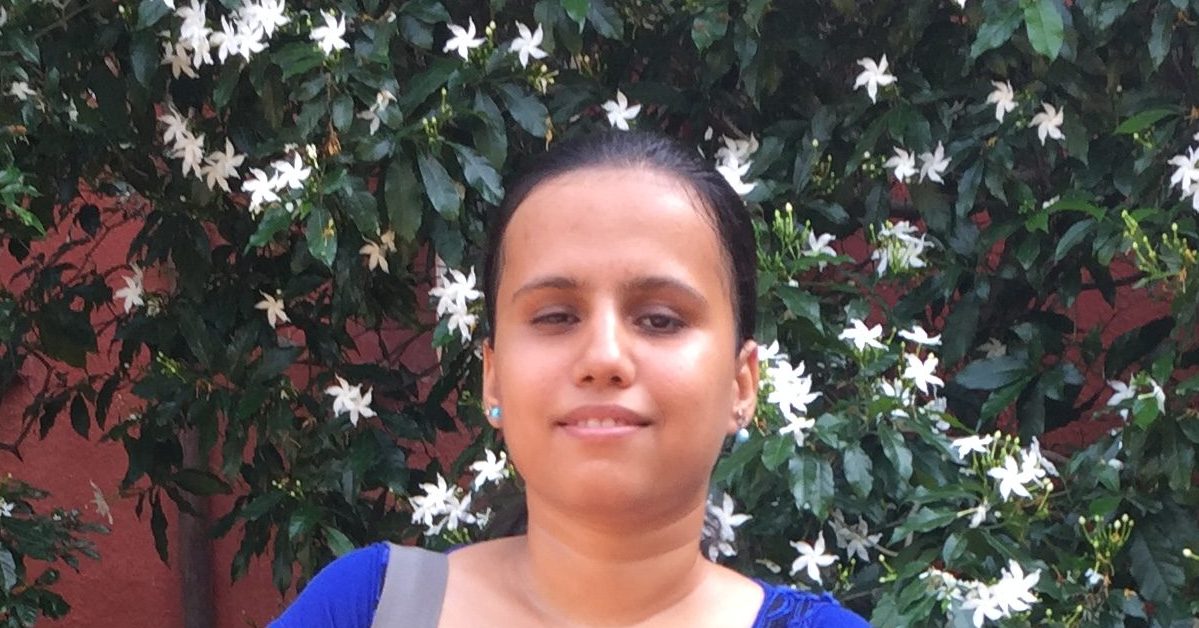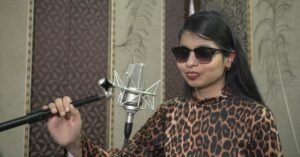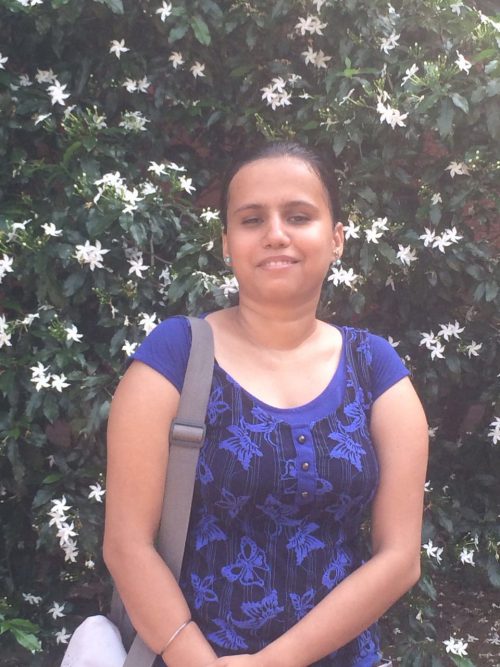TBI Blogs: Meet Chetna Nagpal: Visually Impaired, Ambitious, and a Fighter
People suffering from visual impairment often face extreme difficulties in various aspects of their lives. Here’s a young woman who decided to take on her disability – and its associated difficulties – head-on.

People suffering from visual impairment often face extreme difficulties in various aspects of their lives. Here’s a young woman who decided to take on her disability – and its associated difficulties – head-on.
Chetna Nagpal was born with an eye condition called Nystagmus. It is a condition that causes involuntary eye movement and may result in reduced or limited vision. In Chetna’s case, she can see things, but is unable to focus on anything. However, unlike many, Chetna does not think of her disability as a limitation. She believes visual impairment is more of a mental condition than a physical one.
“Visual impairment is not in the eyes, it’s in the mind. If you will feel that you are visually impaired then you will not be able to do anything. You need to go out of the way to explore the world.”
A 21-year-old ambitious young woman, she is studying in her first year as a Political Science major in one of India’s top colleges, Lady Shri Ram College for Women. Born to totally blind parents, Chetna did not have it easy while growing up. Her parents did not know she could see at all, until she was old enough to start talking and pointing out things to them.
Chetna reminisces, “Initially my parents didn’t know that I could see at all. They had this misconception that I was totally blind like them. They used to switch off the lights and I used to cry, and they couldn’t figure out why. It was only when I started pointing out things to them that they realized I could see…When they did figure out that I had some vision, life became a bit easier.” Her journey was tough, but given her parents’ and her own optimism, Chetna never really felt restricted in any way despite her visual impairment. “My parents were very supportive. My father never stopped me from doing anything or going anywhere,” she says, visibly proud.
In 2007, Chetna came into contact with a Delhi-based NGO, Saksham, who helped her integrate into an inclusive education system in Salwan Public School.
“I was admitted into Saksham where I got two years of training. There, I learnt to read and write in Braille, and learnt math using a Taylor Frame. I learnt computers. After that, Saksham trainers felt I was polished enough to be inducted into a mainstream set-up to study, and got me admitted into Salwan.”
Chetna was among the fortunate few to have teachers and school authorities who understood her weakness and helped her study along with able-bodied children of her age. She did face issues initially because the teachers were not used to addressing the needs of a visually challenged student, but they gradually managed to make the environment more conducive.
Chetna made the most of her opportunity of studying in an inclusive environment. She was quick to point out her issues when her teachers failed to address her needs. Chetna even fought alone with the school authorities to get herself a good scribe so she could score well in her Class XII exams. She grabbed all opportunities in school to hone her communication skills, because she believes good communication is essential for one’s successful integration into the mainstream.
“Communication is very important. Everyone else communicates a great deal with their eyes. But for a visually impaired person, if we cannot speak well, then we cannot communicate or express ourselves fully.”
Apart from developing good communication skills, Chetna believes that persons with visual impairment should embrace technology. At her college now, with the help of assistive technology, she is able to keep up with her lessons. She is also able to commute by herself daily to college using public transport and her smart phone.
“With the help of computers, I can do my work faster. Technology eases out everything,” she says. “I have a smart phone with software in it that speaks out everything. So, I don’t need anyone’s help to read out numbers to me or to save a particular number for me. I have my laptop which has a screen reader because of which I don’t need anyone to read out the written text to me – I can read it for myself. I can record things for myself. If technology is used in a good way it can be very helpful. For us [visually impaired people] it is truly a blessing. The process of education also becomes a lot easier with technology.”
At Lady Shri Ram College, Chetna has access to a resource room which is fully equipped with both technological and human support. But she believes that there is a need to replicate such support systems in all colleges and educational institutions so that visually impaired people can succeed and lead independent lives.
As a starting point, there is also a need to receive the disabled with welcoming arms into the inclusive education system.
Chetna has very clear views on the subject, “They should always welcome students like me. They should not say that he/she will not be able to survive in this environment. They should give us a chance.” She also feels that instead of putting responsibility entirely on the authorities, individuals should alter their behavior towards the disabled population. “I don’t know about authorities. I feel that individuals should do something. Authorities will automatically begin to do things when individuals will be more aware and proactive. The society is mixed. There are both good and bad people. They are not really bad people – they are just unaware – and they just don’t know any better.”
As for the visually impaired, Chetna believes they need to believe in themselves to be able to become a part of the mainstream, “As an individual, I always believe that one should never give up on anything. One should keep trying. You have all the right to do something for yourself and for society. So never give up on hope and always think that there will be a positive outcome. If today is not a good day for you then that doesn’t mean that tomorrow won’t be better. There will be a new day, a new beginning.”
About the Author: Shruti Pushkarna is the Communications Manager with Score Foundation in New Delhi. Under its flagship project, ‘Eyeway’, the organization runs a national toll-free helpline for the blind and visually impaired (1800 300 20469). Saksham is a partner member of the Eyeway network.
Like this story? Or have something to share? Write to us: [email protected], or connect with us on Facebook and Twitter.
NEW: Click here to get positive news on WhatsApp!

Similar Story

Bullied For Being Blind, I Found A Lucrative Career in Voiceovers & Music
Delhi resident and voiceover artist Resham Talwar, who was born blind, exemplifies what it means to never give up, as she narrates her story of dealing with bullies and emerging victorious with music.
Read more >
If you found our stories insightful, informative, or even just enjoyable, we invite you to consider making a voluntary payment to support the work we do at The Better India. Your contribution helps us continue producing quality content that educates, inspires, and drives positive change.
Choose one of the payment options below for your contribution-
By paying for the stories you value, you directly contribute to sustaining our efforts focused on making a difference in the world. Together, let's ensure that impactful stories continue to be told and shared, enriching lives and communities alike.
Thank you for your support. Here are some frequently asked questions you might find helpful to know why you are contributing?


This story made me
-
97
-
121
-
89
-
167














